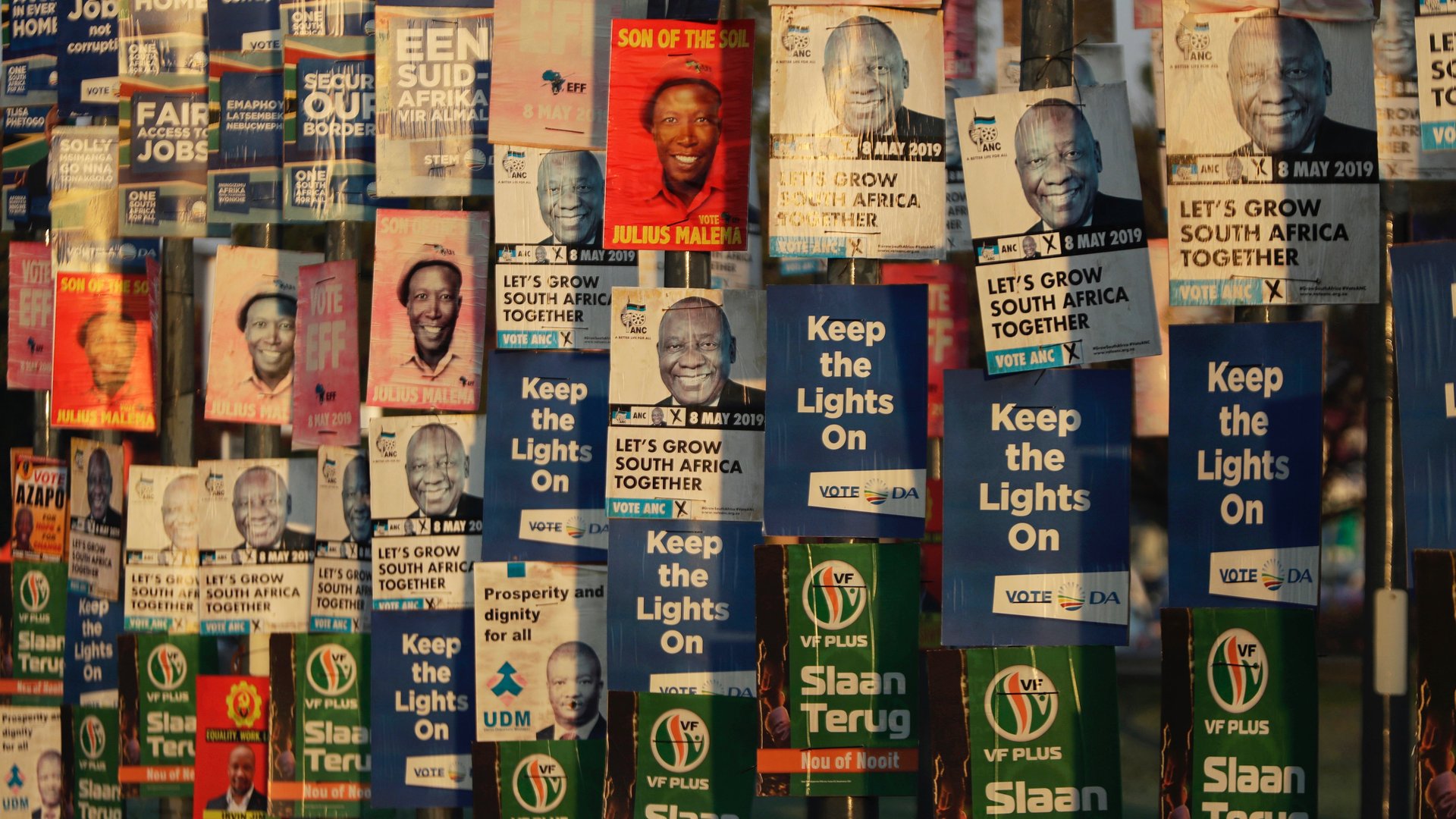South Africa’s election result had few surprises, except one rude awakening
It is no surprise that the African National Congress emerged victorious in South Africa’s general election this week, but the changing profile of its rivals shows that political landscape of Africa’s most advanced economy is beginning to transform radically, to the left and the right. Land is the center of both sides of the debate.


It is no surprise that the African National Congress emerged victorious in South Africa’s general election this week, but the changing profile of its rivals shows that political landscape of Africa’s most advanced economy is beginning to transform radically, to the left and the right. Land is the center of both sides of the debate.
Despite their victory, this is the ANC’s worst performance yet. At 57.5% of the national vote, the ANC continues a steady decline. Despite president Cyril Ramaphosa’s promises of a new dawn, the party couldn’t shake its darker recent past of corruption, slow economic growth and factional fighting. Ramaphosa’s focus on land redistribution and anti-corruption did not quite yield the results the party had hoped and it struggled to hold on to the economic hub, Gauteng.
Its nearest rival, the Democratic Alliance, did not fare much better, earning 20,7% of the national vote, down from 22,23% in 2014. The liberal party maintained its stronghold in the Western Cape, but for the first time since 1994, failed to grow its support. The party’s first black president, Mmusi Maimane, may be out of a job soon, analysts said.
Julius Malema’s Economic Freedom Fighters party looks set to become the official opposition by the next election, growing its share of the national vote from 6.35% in 2014 to 10,79%. With its leftist policies and the impatient slogan, “Our Land and Jobs, Now!” the EFF not only tapped into the frustration of disenfranchised youth, but peri-urban communities throughout the country.
Ahead of the vote, pollsters analyzed that the Democratic Alliance would bleed conservative votes, to the Freedom Front Plus. The DA itself conceded that the loss of this constituency was “inevitable,” yet the growth of this hitherto fringe party has shocked many in the country.
“It’s part of the repositioning of the party and we will have to learn the lessons from this election,” a member of the DA’s leadership.
For its part, the FF+ made it clear that it represented minorities, positioning itself as the voice for “a new generation of embittered individuals is forming among Afrikaners, coloured and other nonblack people.” And it seems to have worked: party only won five districts in the last election—this year it claimed more than 100 making it the fifth largest party in the country. With 2,4% of the vote, its portion of the win is small, but thanks to South Africa’s proportional representation electoral system, the FF+ will have a louder voice in parliament.
The conservative, right-leaning party campaigned with the slogan “Fight Back,” with a manifesto centered on the principle that “South Africa is teetering on the edge of ruin.” Land and farm murders were among their key issues. The party is “strongly opposed” to expropriation without compensation and described farm murders as “a national crisis.”
“The two biggest parties to grow in 2019 are the FF plus on the far right representing predominantly white Afrikaans communities and the EFF on the far left representing largely black young, economically marginalized youth,” said Tessa Dooms, a social analyst. “The lesson is that the lived realities and the legacies of Apartheid that we have thought would go away over time have not only remained but are becoming politically significant.”
While campaigning overtly on race would be frowned upon in South Africa today, the FF+ is using the Afrikaans language to mobilize coloured South Africans, Dooms told Quartz. Like its rival on the opposite end of the political spectrum, the EFF, the FF+ has tapped into the frustrations of those who feel left behind.
Sign up to the Quartz Africa Weekly Brief here for news and analysis on African business, tech and innovation in your inbox